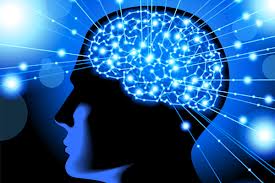Ongoing research studies on the difference between typing and handwriting are yielding some preliminary results: handwriting is better for learning.
“Based on my research, handwritten notes are more effective for learning,” said Dr. Daniel Oppenheimer, associate professor at University of California, Los Angeles.
In an article called “The pen is mightier than the keyboard: advantages of longhand over laptop note-taking,” Oppenheimer and Pauline Mueller, graduate student at Princeton, revealed results from a recent study they conducted. The study was based on students taking notes using a pen and paper or a laptop to determine which method is most effective for learning. Both groups performed similarly but the laptop group performed worse on conceptual learning. In other words, both groups can recall facts but the handwritten-notes group can connect concepts more easily.
“Writing letters and words by hand seems to be more complicated than typing, as there are more fine movements with handwriting,” said Dr. David Copeland, professor of psychology at the University of Nevada, Las Vegas. “The involvement of these processes can potentially improve memory.”
Dr. Robert Bjork, a distinguished research professor of cognitive psychology at UCLA, voiced his preference for handwritten notes and likened the method of typing notes to that of a court clerk’s record-keeping process.
“A court clerk is more concerned with getting the information down quickly and accurately rather than learning what is happening in the courtroom,” Bjork said. “You have to be an active participant in order to create long-term retention.” For example, students might increase their abilities to retain information by drawing diagrams or images on their notes. The physical act of doing this helps cement memory.
Some instructors understand this and thereby discourage the use of electronic devices in their classrooms.
One such instructor is Dr. Maria Moya, professor of psychology at the College of Southern Nevada.
“There are research studies that have been done on how well we remember,” Moya said. “The conclusion of those studies is that we remember what we write down.”
“The studies go on to state that the act of writing seems to enable the coding that has to occur in order for stimuli to go into long-term memory,” Moya added. “Writing manually changes our brain.”
That is not to say that typing notes is to be dismissed entirely. There are some advantages.
Everett Gutierrez, student of communications at CSN, described having difficulty reading his own notes after scrambling to write them down quickly during lectures.
“I have horrible handwriting,” Gutierrez said. “Can you imagine how it feels to not be able to read your own notes?” He added that typing his notes helps him to capture the information he learned.
Copeland adds, “Typing has clear benefits over handwriting, such as being able to take notes much more quickly.” Although students should go a step further from typing notes verbatim to actually thinking about the material and connecting the ideas for retention.




